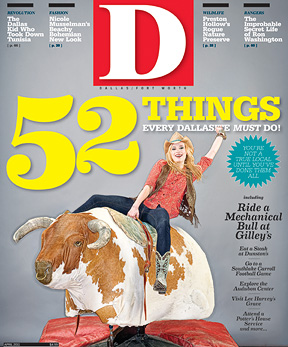Suppose you’re a young artist and you want to create a video installation. To do it, you have to buy lighting equipment. You will pay a sales tax. But suppose you run an ad agency and you have to buy lighting equipment to shoot a commercial. Good news! No sales tax.
Or maybe you run a small business and you need to buy a server to handle more web traffic. You will pay a sales tax. But if you are running a multimillion-dollar gaming company and you need a new server, no problem. You do not pay sales tax.
No matter what you are doing, if you buy a Coke or Dr Pepper, you pay a sales tax. But if you slake your thirst with bottled water, you do not.
These and hundreds of other special favors are threaded though the Texas tax code. In 1989, for example, the state created an exemption designed to encourage high-cost drilling in the Barnett Shale. The tax break must have worked. By 2009, there were 13,785 producing wells. The independents who first explored the field and sold out to major out-of-state energy companies are millionaires. But an exemption designed to spur that initial exploration still remains in the tax code, costing the state nearly $1 billion a year.
Oil and gas in Texas are subject to a severance tax. These natural resources are “severed” from the land and from use by future generations. Once it’s out, it’s gone. Strangely, though, coal is not subject to a severance tax, even though its extraction causes environmental damage and public health consequences. Coal owners are not even required to report on their coal’s value. As the House Ways and Means Committee recently noted (dryly), “When Texas power plants buy Wyoming coal, a portion of an individual’s electricity payment is exported to finance Wyoming’s state government.” It estimates that a tax on coal would bring in $70 million a year.
The most successful lobby in Austin is the insurance business. Homeowners in Texas pay the most expensive insurance premiums in the nation. For the privilege of overcharging our residents, the insurance industry in Texas pays 46 percent less in gross premium taxes than the national average. Not only that, but the insurance industry is exempt from the business franchise tax. In 2011, that exemption alone will cost the state more than $546 million.
If you do not run an insurance company, the next best thing is to run an “open-end” investment company, like a mutual fund. It is also exempt from franchise taxes. In 2011, that will cost the state $641 million in lost taxes. Or perhaps you would prefer to be in the coffee business in Houston. Raw cocoa and green coffee held in Harris County receives a property tax exemption amounting to $60 million.
Meanwhile, Texas homeowners continue to pay the third-highest property tax rates in the nation, based on median home value. And that is after the 2006 legislative reform intended to reduce them. (The new, revised, remodeled business franchise tax was supposed to bring in $6.4 billion in 2010. Instead, it totaled only $3.9 billion.) So Texas homeowners carry 39 percent of the tax burden of state government while some businesses—and entire industries—get off scot-free.
A fiscal disaster sometimes shines a light into nooks and crannies that special interests would prefer be kept in the dark. The Legislature has increased spending 36 percent since Republicans took over in 2003, while not raising revenue to pay for it. This house of cards had to collapse someday. Now that it has, the Legislature has the opportunity to equalize the tax burden. I might start with coffee beans in Houston. But the Barnett Shale, coal mines, and insurance industry would not be far behind.
Write to [email protected].





